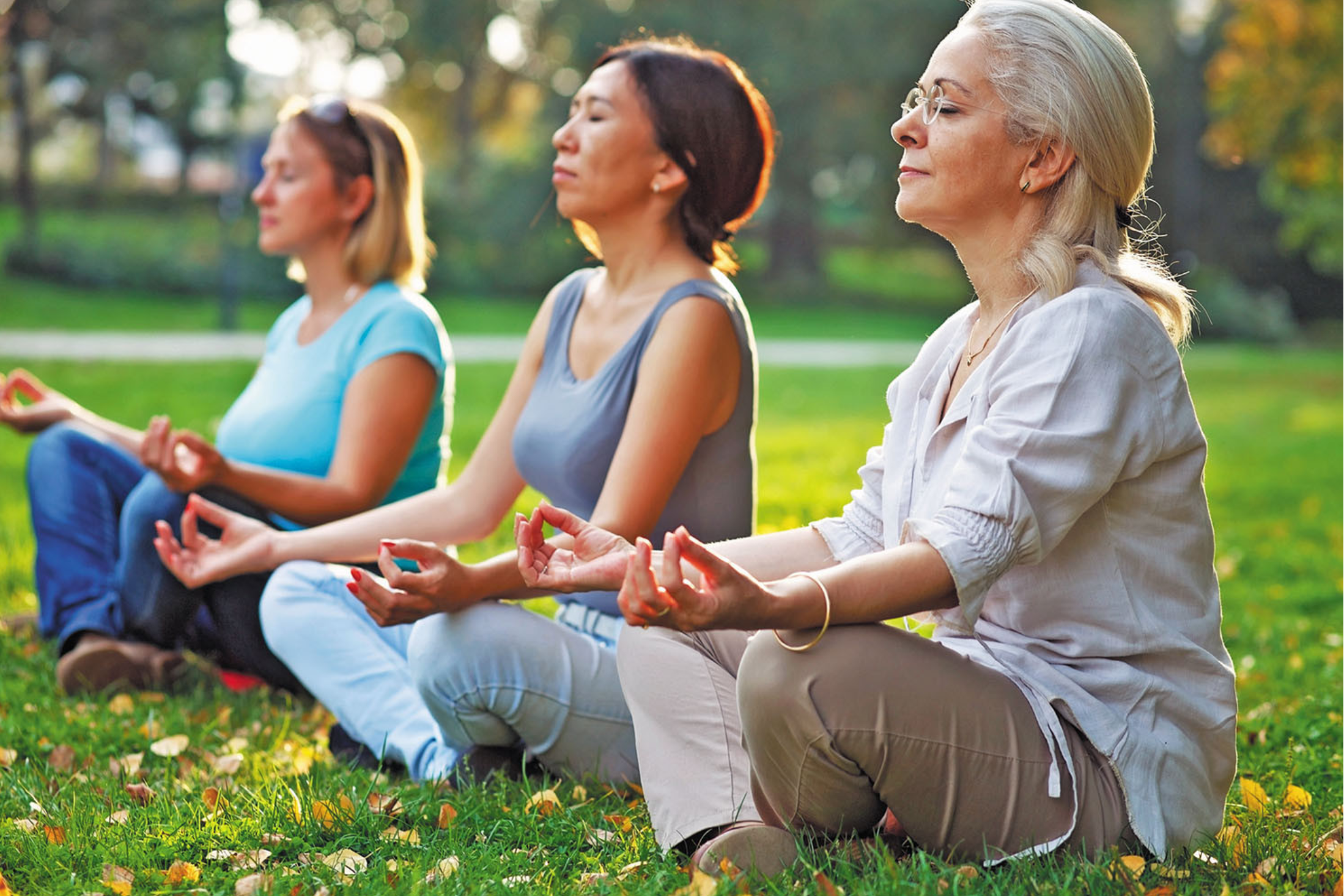
Fun Summer Activities for the Elderly with Caregiver Support
June 28th, 2025Caregiver Agency, Caregiver Service, In home assistance for the elderly, in home care assistance, Polish Care Services, Senior Care Services, Uncategorized,
Summer is a vibrant season filled with opportunities for the elderly to stay active, engaged, and socially connected. At Polish Care Services, a leading Caregiver Agency in Connecticut and Florida, we understand the importance of keeping seniors involved in meaningful activities to enhance their well-being. Our Senior Care Services and In home assistance for the elderly ensure that seniors can enjoy summer safely and joyfully with the support of our dedicated Polish caregivers. From outdoor adventures to creative indoor pursuits, here are fun summer activities tailored for the elderly, supported by our Companion and Homemaker Services to make every moment memorable.
Why Summer Activities Matter for Seniors
Summer offers warm weather, longer days, and a chance for seniors to enjoy new experiences. Engaging in activities promotes physical health, mental stimulation, and emotional well-being, which are critical for aging gracefully. Our Caregiver Agency specializes in providing In home assistance for the elderly, helping seniors participate in activities that suit their abilities and interests. Whether it’s a stroll in a Connecticut park or a craft session in a Florida home, our Polish caregivers offer compassionate support to ensure safety and enjoyment. Studies show that active seniors experience improved mood and reduced health risks, making summer activities a vital part of Senior Care Services.
Outdoor Activities for Seniors
Outdoor activities allow seniors to soak up vitamin D and enjoy nature, with Companion and Homemaker Services ensuring they’re safe and comfortable. Here are some ideas:
Garden Strolls and Picnics
Taking a leisurely walk through local gardens, such as Elizabeth Park in Hartford, CT, or Marie Selby Botanical Gardens in Sarasota, FL, is a perfect summer activity. Our Polish caregivers provide In home assistance for the elderly by assisting with mobility, carrying picnic supplies, or setting up a shaded spot for a meal. Picnics with family or friends foster social connections, and our Caregiver Agency ensures seniors are supported throughout the outing.
Beach or Park Visits
In Florida, seniors can enjoy gentle walks along Siesta Beach or Venice Beach, while Connecticut offers serene parks like Bushnell Park. Our Senior Care Services include transportation and companionship, allowing seniors to enjoy the scenery safely. Companion and Homemaker Services ensure hydration, sun protection, and comfort, making these outings enjoyable and stress-free.
Outdoor Yoga or Tai Chi
Gentle exercises like yoga or tai chi in local parks promote flexibility and balance. Many CT and FL communities offer senior-friendly classes, and our Polish caregivers can accompany clients, providing support during sessions. These activities enhance physical health, and our Caregiver Agency tailors assistance to each senior’s needs.
Indoor Activities for Hot Summer Days
When temperatures soar, indoor activities keep seniors engaged without the risk of heat exhaustion. Our In home assistance for the elderly ensures these activities are safe and fun.
Arts and Crafts
Crafting sessions, such as painting or scrapbooking, stimulate creativity and provide a sense of accomplishment. Our Companion and Homemaker Services include setting up supplies, guiding projects, or even joining in to create a bonding experience. Seniors in Sarasota can draw inspiration from local art at the Ringling Museum, while those in Hartford can explore themes from the Wadsworth Atheneum, with Polish caregivers offering support.
Board Games and Puzzles
Board games like Scrabble or puzzles like jigsaw sets are excellent for mental stimulation. Our Senior Care Services include organizing game nights at home, with Polish caregivers facilitating group activities or playing one-on-one. These activities foster cognitive health and social interaction, ideal for seniors in CT and FL.
Virtual Tours and Learning
Seniors can explore virtual museum tours or take online classes on topics like history or cooking. Our Caregiver Agency provides In home assistance for the elderly by setting up devices, ensuring accessibility, and offering companionship during these activities. Virtual tours of places like Florida’s Kennedy Space Center or Connecticut’s Mystic Seaport keep seniors engaged indoors.
Community-Based Summer Activities
Community events in CT and FL offer seniors opportunities to socialize and stay active, with our Companion and Homemaker Services providing essential support.
Farmers’ Markets
Visiting farmers’ markets, such as the Sarasota Farmers Market or Hartford’s Regional Market, allows seniors to enjoy fresh produce and community vibes. Our Polish caregivers assist with walking, carrying bags, or selecting items, ensuring a safe and enjoyable experience. These outings align with our Senior Care Services, promoting healthy eating and social engagement.
Senior Center Events
Many CT and FL senior centers host summer events like bingo, dance classes, or barbecues. Our Caregiver Agency provides transportation and companionship, enabling seniors to participate fully. For example, seniors in Farmington, CT, or Venice, FL, can enjoy local events with the support of In home assistance for the elderly.
Library Programs
Libraries in Farmington, CT, or Southgate, FL, offer summer reading programs or lectures for seniors. Our Polish caregivers accompany clients, help with book selections, or assist with note-taking during talks, enhancing intellectual stimulation through Companion and Homemaker Services.
Benefits of Caregiver Support for Summer Activities
Engaging in summer activities with caregiver support offers numerous benefits for seniors:
– Safety and Comfort: Our Polish caregivers ensure seniors are safe during outdoor activities, managing mobility aids or monitoring for heat-related issues, as part of In home assistance for the elderly.
– Social Connection: Our Companion and Homemaker Services foster social bonds by accompanying seniors to events or facilitating family interactions, reducing loneliness.
– Personalized Support: As a Caregiver Agency, we tailor activities to each senior’s abilities, ensuring they enjoy summer without strain.
– Mental and Physical Health: Activities supported by Senior Care Services improve cognitive function, physical fitness, and emotional well-being, as evidenced by studies showing active seniors have lower rates of depression.
– Cultural Sensitivity: Our multilingual Polish caregivers provide culturally sensitive care, making activities enjoyable for diverse clients in CT and FL.
Client testimonials highlight our impact: “Polish Care Services made summer special for my mom with their Senior Care Services. Their Polish caregivers helped her enjoy park outings safely” (Mary K., Sarasota, FL).
Serving Connecticut and Florida
Polish Care Services proudly serves seniors across Connecticut and Florida. In CT, we cover towns like Hartford, New Haven, Farmington, and West Hartford, offering In home assistance for the elderly for summer activities. In FL, we serve Sarasota, Southgate, Longboat Key, Venice, and Fruitville, ensuring seniors enjoy local events like beach walks or farmers’ markets. Whether near Hartford’s Elizabeth Park or Sarasota’s Siesta Beach, our Caregiver Agency provides Companion and Homemaker Services to make summer memorable. Our Polish caregivers understand local communities, tailoring activities to enhance seniors’ quality of life.
How to Get Started with Caregiver Support
Start enjoying summer activities with Polish Care Services by contacting us for a free consultation. Our team will assess your needs, match you with skilled Polish caregivers, and create a personalized Senior Care Services plan for summer fun. Visit our Contact Us page or call us to schedule an appointment. Let us help your loved one thrive this summer with In home assistance for the elderly in CT and FL.
Frequently Asked Questions
How can a Caregiver Agency help with summer activities?
Our Caregiver Agency provides In home assistance for the elderly, ensuring seniors can safely participate in activities like picnics or crafts with Polish caregivers.
What summer activities are safe for seniors?
Safe activities include garden strolls, indoor crafts, and community events, supported by our Companion and Homemaker Services for comfort and safety.
Do you offer companionship for seniors in Florida?
Yes, our Senior Care Services include Companion and Homemaker Services for social activities in Sarasota, Venice, and other FL areas.
Can caregivers assist with outdoor activities in Connecticut?
Our Polish caregivers provide In home assistance for the elderly for outdoor activities like park visits in Hartford or New Haven, ensuring safety.
How do I schedule caregiver support for summer?
Contact us via our Contact Us page for a free consultation to plan Senior Care Services for summer activities.
Are your caregivers trained for senior activities?
Yes, our Polish caregivers can provide mobility assistance, safety, and dementia non medical assistance, ensuring enjoyable summer experiences.
Do you serve all of Connecticut and Florida?
We cover key areas like Hartford, New Haven, Sarasota, and Venice, providing Companion and Homemaker Services across CT and FL.
Conclusion
Polish Care Services is your trusted Caregiver Agency for fun summer activities for the elderly in Connecticut and Florida. Our Senior Care Services and In home assistance for the elderly ensure seniors enjoy garden strolls, crafts, and community events safely. With Companion and Homemaker Services and dedicated Polish caregivers, we enhance seniors’ quality of life through engaging summer experiences. Contact us today via our Contact Us page to plan a vibrant summer for your loved one with Senior Care Services in CT and FL.

Is It Time to Outsource Your Office Cleaning? Here’s How to Tell!
June 26th, 2025Cleaning Services, Janitor Cleaning, Janitorial Service, Office Cleaning, Polish Care Services,
Look, we understand it. You are running a business in Avon. Every minute counts. Every penny matters. And sometimes, office cleaning falls at the bottom of the to-do list. Maybe your staff does a quick wipe here and there. Probably, you assigned someone from the team to empty trash cans or clean the breakroom every Friday.
But if you are reading this, you are probably already asking yourself the big question – is it time to outsource professional cleaning services in Avon for your office premises?
Alarming Signs That You Cannot Ignore Calling a Cleaning Company Anymore!
Here you go!
1. When Clean Just Is Not Clean Enough Anymore
Here is the thing: surface clean and actually clean are not the same.
You might not notice the dust in the corners or the fingerprint smudges on the glass doors. But your clients, employees, and guests definitely do. And trust us, they are silently judging.
Here are a few signs your cleaning is not cutting it anymore:
- Bathrooms never really smell fresh, no matter what you try
- Dust returns faster than it should
- The carpet is stained or starting to look tired
- People avoid the breakroom because it feels… yuck!!
You are embarrassed to host meetings in your own office
If any of these hit you, that is your cue. A professional cleaning company in Avon or nearby can transform your workspace from “meh” to “wow.”
2. Your Team Didn’t Sign Up to Be Part-Time Janitors
You built a team to grow your business, not to scrub toilets or sanitize desktops.
Yes, it might have started with good intentions. Everyone chips in, right? But eventually, it creates resentment. People feel like they are doing more than their job title says. And you know what? They are.
When your staff spends time doing cleaning tasks:
- Morale dips (because no one wants to mop floors after closing a big deal)
- Productivity drops (cleaning is time-consuming and distracting)
- Focus shifts away from what matters most- your company
But office cleaning removes that extra burden from your team. It shows them that you value their time, effort, and roles.
3. First Impressions Make or Break Things
You know what they say- you never get a second chance to make a first impression. This could not be more true when it comes to your office space.
When clients or partners walk into your office, the space speaks before you do. A spotless lobby, sparkling windows, and a fresh scent in the air- those things create trust. They build confidence.
Now flip it.
Sticky floors. Dusty desks. Overflowing trash bins.
Yikes.
If you want people to trust your brand, your space should look the part. A professional commercial cleaning service can make your workspace always sharp, inviting, and ready for business.
4. Cleaning Has Become More Complicated Than Ever
Let’s talk real for a minute. We live in a world where cleanliness is no longer just about appearances. It is about health. Safety. Peace of mind.
That quick wipe with a paper towel just does not cut it anymore.
When you trust our cleaning company, our pro cleaners in Avon bring:
- Hospital-grade disinfectants
- Specialized equipment for deep cleaning
- Knowledge of high-touch surfaces and bacteria hotspots
- Routine protocols that follow CDC and OSHA guidelines
A schedule that doesn’t interfere with your team’s day
You can not fake that level of expertise. When you outsource to a cleaning company in Avon, you entrust the responsibility to keep your people safe and healthy.
5. You are Wasting Time Managing Cleaners and Supplies
If you are still managing cleaning tasks in-house, ask yourself how much time you spend on it.
Ordering supplies. Making sure someone remembered to vacuum. Following up when things get missed. Finding replacements when someone calls out.
It adds up.
And all of that energy could be spent on strategy. On sales. On building client relationships.
When you hire someone trusted, all of those headaches go away. Our commercial cleaning service handles everything from supplies to schedules to give you back your time and peace of mind.
6. The “Clean” Standard Has Changed Post-Pandemic
We have all gone through a lot. And you know, people’s standards of what “clean” means have changed.
Today, people notice more. They pay attention to hand sanitizer stations, air quality, and how often things are wiped down. Employees want to feel safe at work. Clients want to know you care about hygiene.
If your office still follows pre-2020 cleaning habits, it might be time to level up.
Hiring our office cleaning services in Avon means your space is ready with the new world in mind. Thoroughly. Thoughtfully. Frequently.
7. Your Business Is Growing, and You Can’t Maintain
Growth is exciting and stressful.
Maybe you moved into a bigger office. Hired more people. Started hosting more meetings. Great signs. But all of that means more cleaning. More bathrooms. More foot traffic. More responsibilities.
And at some point, doing it all yourself is just not sustainable and intelligent, too.
That is where trusting our cleaners is not just wise but necessary. A reliable cleaning company in Avon will scale with your needs, adjust to your schedules, and grow alongside you.
8. You Are Done with the Hidden Costs of In-House Cleaning
Sure, on paper, in-house cleaning might seem cheaper. But do not be fooled.
There are costs you do not see right away:
- Payroll taxes for cleaning staff
- Workers compensation coverage
- Training and supervision
- Cleaning supply orders
Equipment maintenance or replacement
When you tally it all up, hiring often saves you more, not just money but also time and stress.
With our trusted office cleaning service, you get one simple invoice. No extra headaches. No surprise costs.
9. You Care About Professionalism and Detail
Here is something people do not think about: when you hire professional cleaners, you are not just paying for a mop and vacuum.
You are paying for detail.
Professional cleaners are well-trained to notice the things you miss -the small corners, the air vents, the fingerprints on the glass. They do not just “tidy up.” They clean with care. With confidence and pride.
That level of detail shows. It is felt. It is respected.
And when your clients and employees walk in, they feel that difference.
10. You Are Ready to Focus On What You Do Best
Maybe it is the most vital sign that it is time to go for cleaning services in Avon? You are ready to stop juggling it all.
Your energy belongs in your business, your company. Your brainpower is for big ideas, creative solutions, and leadership. Not bathroom soap refills.
Hiring our pros lets you put cleaning in the hands of experts so you can focus on what you do best- running your company.
It is not about spending more. It is about investing smarter.
Is Commercial Cleaning And Office Cleaning The Same? People Often Confuse It!
A lot of people use “office cleaning” and “commercial cleaning” like they mean the same thing. And honestly, it makes sense. They both involve mops, vacuums, and making spaces look nice, right?
Well, not exactly.
Office Cleaning is More Basic, But Commercial Cleaning Goes Deep
Office cleaning usually covers the day-to-day stuff. Think of it like maintenance.
- Emptying trash cans
- Wiping down desks
- Vacuuming carpets
- Cleaning bathrooms and breakrooms
Now, let’s talk about commercial cleaning. This is more heavy-duty. It is the cleaning that goes beyond just making things look good. Instead, it focuses on sanitizing, deep-cleaning, and protecting your space long-term.
It often includes:
- Floor stripping and waxing
- Carpet shampooing and stain removal
- High-touch surface disinfection
- Window cleaning (inside and out)
- Pressure washing
- Industrial-grade cleaning for warehouses, medical offices, gyms, and more
See the difference? Both have their place. But they are not the same.
Why Does This Matter for You?
If you are hiring a cleaning company in Avon or anywhere else, knowing the difference helps you ask for the proper service. It also ensures you are not paying for more than you need, or worse, getting less than what you require.
For a small office with a few desks? Cleaning services in Avon might do the job.
But if you are running a multi-floor medical practice or a high-traffic building? You need commercial-level care.
So yeah, people confuse the two all the time. But now that you know better, you can choose better.
Once you get the service, you will notice the difference. Suddenly, your workspace feels lighter, fresher, and more focused. Your team walks in feeling good. Your clients feel more confident doing business with you. And most importantly, you stop sweating the small stuff that pulls you away from what genuinely matters.
Final Words
Here is the truth: a professional cleaning company in Avon might seem like a small call, but it can change everything. So, why wait?
Reach out to us. We have experienced cleaners who know how to keep your space looking its best on your schedule, with no stress, no hassle, just real results.
So, get your office looking sharp and feeling fresh again. We’ll handle the cleaning so you can focus on what you do best.

Preparing for the Holidays with Your Elderly Loved One
November 13th, 2024Companion Caregiver, Companion Senior Care, Elderly Care, In Home Care, Polish Care Services, Preparing for the Holiday,
The holiday season, with its joy and festivities, provides a perfect opportunity to cherish time with family, especially our elderly loved ones. However, for seniors, especially those requiring care, this time can also bring challenges. Here’s a comprehensive guide on how to prepare for the holidays, ensuring they are enjoyable and stress-free for everyone involved, focusing on the essential roles of companion caregivers and the broader scope of elderly care.
Understanding the Needs of Elderly During the Holidays
Health Considerations:
– Medical Needs: Before diving into holiday planning, review your loved one’s health with their healthcare provider. Ensure any necessary adjustments to medication or diet are made to fit the holiday schedule.
– Mobility: Consider how holiday festivities might impact mobility. If your loved one uses mobility aids, ensure they are in good condition.
Emotional and Social Needs:
– Isolation: Holidays can be particularly isolating for seniors. Plans should include ways to engage them socially.
– Memory Issues: For those with cognitive impairments like dementia, routine is key. Introduce holiday changes gradually.
The Role of Companion Caregivers
Companionship:
– Engagement: Companion caregivers can play a pivotal role in keeping seniors engaged. Activities could range from crafting holiday decorations to watching classic holiday movies together.
– Outings: If feasible, outings to see holiday lights or community events can be delightful, with caregivers ensuring safety and comfort.
Support in Daily Activities:
– Meal Preparation: Holiday meals might require different preparations. Caregivers can assist in cooking or adapting recipes to meet dietary needs without losing the festive spirit.
– Personal Care: Ensuring that personal care routines continue amidst holiday busyness is crucial for maintaining health and comfort.
Planning and Execution
Early Start:
– Shopping: Begin shopping early to avoid the last-minute rush, which can be overwhelming for seniors. Online shopping with caregivers can be a fun activity or a necessary convenience.
– Decorations: Involve your loved one in decorating to the extent they can. This not only makes them feel included but can also stimulate memory and cognitive functions.
Safety First:
– Home Environment: Ensure the home is safe for holiday activities. Secure decorations, manage cords to prevent tripping, and consider the placement of the Christmas tree or menorah to avoid fire hazards.
– Emergency Plan: Have an emergency plan in place. Know where the nearest hospital is, have emergency numbers accessible, and ensure caregivers are briefed on any specific health concerns.
Celebrating Together
Adapting Traditions:
– Simplifying: Sometimes, traditional celebrations might need scaling down. Focus on what truly matters; for instance, a small, intimate gathering might be more comforting than a large party.
– Inclusion: If your loved one can’t participate in every event, find ways to include them, like video calls during family gatherings.
Special Activities:
– Memory Sharing: Encourage storytelling sessions where seniors can share past holiday memories. This not only entertains but also preserves family history.
– Crafts and Cooking: Involve them in holiday crafts or simple cooking tasks they can manage, promoting a sense of contribution and creativity.
Caregiver Support
Respite for Family Caregivers:
– Professional Help: Consider hiring professional care during peak holiday activities to give family caregivers a much-needed break.
– Self-Care: Remind family caregivers to look after their own well-being, ensuring they also enjoy the holidays.
Training and Preparation:
– Handling Emergencies: Ensure caregivers are trained in first aid and know how to manage holiday-specific emergencies like food poisoning or falls.
– Cultural Sensitivity: If your traditions involve specific cultural practices, ensure caregivers are sensitive to these, enhancing the experience for everyone.
Technology in Elderly Care
Digital Engagement:
– Virtual Gatherings: Use technology to connect with family members who can’t visit in person. Caregivers can assist in setting up video calls or teaching seniors how to use these tools.
– Health Monitoring: Utilize health apps or devices to keep track of vitals or medication schedules, which can be particularly helpful during the chaotic holiday season.
Post-Holiday Care
Recovery and Reflection:
– Rest: After the festivities, ensure there’s ample time for rest. The excitement can be exhausting for the elderly.
– Review: Reflect on what worked well during the holidays and what could be improved for future celebrations, keeping notes for next year.
Conclusion
Preparing for the holidays with an elderly loved one involves a delicate balance of celebration, care, and safety. By leveraging the support of companion caregivers, embracing senior care practices, and adapting to the unique needs of elderly care, you can create a holiday season that is not only memorable but also nurturing. This time of year can become a cherished period where love, care, and tradition intermingle, providing warmth and joy to all, especially those who might need a little extra attention during the festive times. Remember, the goal isn’t just to celebrate, but to do so in a way that honors and includes our elderly loved ones in every possible way. Polish Care Services provide non-medical assistance to seniors and disabled to enjoy quality of life, please contact us for more information.

Embracing Your Empty Nest: Rediscovering Joy and Purpose
July 17th, 2024Polish Care Services, Polish Care Services Trademark, Retirement Plans for Seniors, Senior Living, Senior Services,
Transitioning to an empty nest can be a transformative period in your life. With newfound time and space, it’s the perfect moment to rediscover your passions, hobbies, and goals. Embracing this change allows you to explore new interests and enhance your well-being. Courtesy of Polish Care Services, here are some creative and practical ways to make the most of this exciting phase, ensuring a fulfilling and vibrant next chapter.
Unleash Your Creativity
Learning a creative skill can invigorate your mind and provide a fulfilling way to spend your time. Whether it’s painting, writing, or playing an instrument, creative activities bring immense joy and satisfaction. They offer a chance to express yourself in new ways and discover hidden talents. Joining a local art class or online community can also help you meet new people.
Simplify Your Space
As your children move out, decluttering your home becomes a liberating task. Organizing your documents digitally can significantly reduce clutter. Scan important papers and save them on your computer or cloud storage. Use a PDF splitter tool to manage large files, allowing you to split PDF docs, rename, and share them easily. Consider donating or selling items you no longer need to create a more open and organized space.
Explore New Destinations
Take advantage of your newfound freedom by traveling with friends or your partner. Exploring new places together can strengthen relationships and create unforgettable memories. Whether it’s a weekend getaway or a longer adventure, traveling brings excitement and renewal. Plan trips to desired destinations or explore hidden gems closer to home. Traveling off-season can also offer more affordable and less crowded experiences.
Culinary Adventures
Trying new recipes can add variety to your daily routine. Experimenting with different cuisines and cooking techniques is both fun and rewarding. Cooking new dishes enhances your culinary skills and introduces fresh flavors and healthy options to your diet. Hosting dinner parties or cooking classes for friends can turn this hobby into a social activity. Discovering new ingredients and methods makes every meal an adventure.
Forge New Friendships
Establishing new connections can enrich your social life and provide support during this transition. Join clubs, attend community events, or take classes to meet people with similar interests. Building a new social network helps you feel more engaged and connected in your community. Volunteering for local organizations is another great way to meet people and give back. Developing friendships offers mutual support and understanding.
Secure Your Future
Focusing on financial planning is crucial at this stage. Review your retirement plans, investments, and expenses to ensure you are on track for a comfortable future. Consulting with a financial advisor provides clarity and helps you make informed decisions about your financial goals and security. Consider new investment opportunities to maximize savings. Creating a budget that reflects your lifestyle can effectively manage your finances.
Pursue New Ambitions
Setting new personal goals gives you direction and purpose. Whether it’s learning a new language, writing a book, or achieving a fitness milestone, having goals keeps you motivated and focused. It’s a chance to pursue dreams you may have set aside while raising your children. Regularly revisiting and adjusting your goals keeps you inspired. Celebrating your achievements, no matter how small, boosts your confidence and satisfaction.
Cultivate a Green Thumb
Starting a garden can be a therapeutic and rewarding hobby. Whether you have a large backyard or a small balcony, gardening allows you to connect with nature and enjoy the fruits of your labor. Growing your own vegetables, herbs, or flowers provides a sense of accomplishment and adds beauty to your living space. Gardening offers physical exercise and mental relaxation, and joining a gardening club or workshop enhances your enjoyment.
Embracing this new chapter of life provides a wealth of opportunities for personal growth and fulfillment. By actively engaging in new pursuits, strengthening connections, and focusing on your well-being, you can create a vibrant and satisfying lifestyle. This period of rediscovery is a time to cherish and make the most of every moment, finding purpose in your evolving journey.
Experience top-quality caregiver and cleaning services with Polish Care Services. Visit our site to discover how we can meet your needs with compassion and professionalism, ensuring peace of mind and satisfaction for your loved ones.
Credit: June Duncan

Beyond Retirement: A Guide to Purposeful & Healthy Senior Living
March 5th, 2024aging in place, Elderly Care, Polish Care Services, Senior Living,
Starting over in a new city presents a blend of challenges and opportunities for a purposeful and healthy senior living, especially for senior citizens. It’s a phase that demands resilience but also paves the way for growth and new beginnings. With thoughtful preparation and a positive mindset, navigating this significant change can lead to a rewarding experience. This Polish Care Services guide offers strategic advice to ensure a smooth transition, empowering you to establish a vibrant and fulfilling life in your new locale.
Knowing the Area
Before you embark on your journey, it’s crucial to have a deep understanding of your future home. Evaluate the cost of living, healthcare facilities, recreational activities, and the proximity to family and friends. This groundwork will not only assist in making an informed decision on senior living but also in setting realistic expectations. By prioritizing what’s most crucial, you can find a place that aligns with your lifestyle and needs, ensuring a smoother adjustment to your new surroundings.
Finding Employment
For those looking to remain active in the workforce, securing employment beforehand offers financial stability and a sense of purpose. It connects you to the community and provides a routine, making the transition to a new environment less overwhelming.
Investigate job opportunities that cater to your skills and interests, and leverage professional networks to facilitate your job search. This proactive approach can significantly ease your integration into the city’s social and economic fabric.
Changing Your Lifestyle
Embarking on a fresh chapter of life frequently prompts a reevaluation of personal habits, especially regarding alcohol consumption. For individuals who have turned to alcohol as a coping mechanism, connecting with local rehabilitation centers is a crucial step toward a more healthful life.
Knowing how to seek recovery help is critical as you navigate through this new journey. Just be sure to research different facilities’ treatments, costs, and reviews before proceeding; some places offer free services if you have health insurance.
Getting More Social
Building a new social network is pivotal for feeling connected and supported in your senior living journey and lifestyle. Engage in clubs, groups, or organizations that reflect your interests, be it a book club, a gardening group, or a volunteer project. These platforms offer opportunities to meet like-minded individuals, fostering friendships and a sense of belonging. This social engagement is vital for emotional well-being, helping you to feel part of the community and reducing feelings of isolation.
Exploring the City
Immersing yourself in the city’s culture and environment is a delightful way to feel more at home. Take the time to explore different neighborhoods, visit landmarks, and enjoy local cuisine. This exploration not only acquaints you with the area but also allows you to discover new favorites and routines. It’s a fun and engaging way to connect with your new city, turning unfamiliar places into familiar haunts.
Connecting with Loved Ones
Maintaining relationships with family and friends is essential during this transition. Regular communication through calls, messages, and visits keeps you grounded and provides emotional support. These connections remind you of the continuity in your life, bridging the gap between your past and present. They play a critical role in your adaptation process, offering encouragement and a listening ear when you need it most.
Seeking New Experiences
Be open to new experiences and adventures that the city has to offer. Whether it’s participating in cultural events, starting a new hobby, or enrolling in classes, these activities enrich your life and expand your horizons. Stepping out of your comfort zone can lead to unexpected joys and learning, making your relocation not just a change of address but a journey of personal growth.
Staying Healthy and Well
Finally, remember the importance of self-care. Prioritize activities that nurture your physical, emotional, and mental health. Whether it’s through exercise, meditation, or enjoying nature, taking time for yourself is crucial. It ensures you remain energized and balanced, able to embrace and enjoy your new environment fully.
Conclusion
Relocating to a new city in your senior years is a significant milestone that offers a unique blend of challenges and opportunities. By approaching this transition with preparation, openness, and a focus on well-being, you can build a fulfilling life full of new experiences and connections.
This journey is not just about moving to a new place but about rediscovering yourself and what makes you thrive. Embrace the adventure with an open heart, and let your new city be the canvas for your next great chapter.
Credit: June Duncan

The Power of Music: Enhancing the Well-being of the Elderly
February 3rd, 2024Alzheimer's Care, Caregiver Service, Polish Care Services, Seniors,

Healing Power of Meditation: Enhancing Well-being for the Elderly
January 15th, 2024aging in place, Elderly Care, Meditation, Polish Care Services,

Building a Legacy for Seniors, A How to Guide
January 7th, 2024Legacy, Polish Care Services, Seniors,
Building a legacy is a fulfilling accomplishment for seniors. It takes on additional significance as they strive to leave behind a lasting impact on their loved ones, community, and the world. In this article, we will explore 20 ways a senior can build a legacy, ensuring their mark will endure for generations to come.
Document Personal History:
Documenting personal history is a meaningful way to preserve our unique life experiences for future generations. By writing a memoir or recording personal stories, we create a rich tapestry of memories that can be cherished and learned from for years to come.
To start documenting your personal history, begin by setting aside dedicated time to reflect on your life. Consider significant events, anecdotes, and moments that shaped you as an individual. Jot down these memories, capturing as many details as possible. Recalling specific conversations, emotions, and sensory experiences will add depth and authenticity to your narrative.
Next, organize your memories into a logical structure. You can choose to write a chronological account of your life, focusing on each period separately, or organize them thematically, exploring specific aspects of your life in different chapters.
As you begin writing, be vulnerable and honest. Share your triumphs, challenges, and the valuable lessons you’ve learned along the way. This authenticity will help your readers connect with your story and understand the human experience on a deeper level.
Remember to incorporate vivid descriptions to bring your memories to life. Engage the senses, paint mental images, and provide contextual details to transport your readers back in time.
To add depth and perspective, consider including the important relationships in your life. Reflect on how these connections influenced your journey and shaped you into the person you are today. Sharing anecdotes about your loved ones will not only honor their place in your life but also provide future generations with a glimpse into the dynamics of their ancestors.
Alternatively, if writing isn’t your preferred medium, consider recording your personal stories using audio or video. Encourage loved ones to participate in the conversation, asking about their memories and perspectives. This collaborative approach will result in a more comprehensive and nuanced account of your personal history.
Mentorship Programs:
Mentorship programs offer a valuable opportunity for individuals to share their knowledge and wisdom with younger generations. By participating in these programs, mentors can make a profound impact on the lives of their mentees, passing on the lessons they have learned over a lifetime.
To become an effective mentor, start by identifying your areas of expertise and passion. Consider the skills and experiences you have gained throughout your life that could benefit others. Once you have a clear understanding of what you have to offer, seek out mentorship programs that align with your interests and values.
Establishing a strong foundation of trust and open communication is crucial in any mentorship relationship. Take the time to get to know your mentee on a personal level, understanding their goals, aspirations, and challenges. Actively listen to their concerns and provide a non-judgmental space for them to share their thoughts.
As a mentor, it is essential to create a supportive and nurturing environment for your mentee. Offer guidance, encouragement, and constructive feedback to help them navigate their personal and professional paths. Share your own experiences, both successes and failures, to help them gain perspective and learn from your journey.
While it is essential to offer guidance and support, remember that mentorship is a two-way street. Encourage your mentee to actively participate in their own personal and professional growth. Help them set goals, hold them accountable, and provide resources or connections that can aid them on their journey.
Lastly, be patient and understanding. Building relationships and personal growth take time. Be available and committed to the mentorship process, offering ongoing support as needed.
Volunteer Work:
Volunteer work is a fulfilling way for seniors to give back to their community and make a positive impact on the lives of others. By getting involved with local charities or non-profit organizations, seniors can utilize their skills, knowledge, and life experience to support those in need. Whether it’s tutoring children, helping at a food bank, or participating in community clean-up projects, volunteering allows seniors to stay active, engage with others, and contribute to a greater cause. It not only benefits the community but also provides seniors with a sense of purpose, a chance to learn new skills, and valuable social connections. Volunteering is an excellent way for seniors to make a difference and continue making a positive impact long into their golden years.
Philanthropy:
Philanthropy empowers seniors to create lasting change in areas they are passionate about by setting up foundations or contributing to existing charitable initiatives. With the resources and wisdom accumulated over a lifetime, seniors can make a significant impact on society. By supporting causes such as education, healthcare, or environmental conservation, seniors can exert their influence and leave a profound legacy. Philanthropy not only benefits the causes they support but also provides seniors with a sense of purpose and fulfillment as they make a positive difference in the world. By leveraging their resources for the greater good, seniors can create a lasting impact that extends far beyond their own lifetime.
Establishing Scholarships:
Establishing scholarships is a powerful way for seniors to leave a lasting impact on future generations. By creating scholarships, senior individuals can provide deserving students with access to educational opportunities they may not otherwise have. This act of generosity ensures that their legacy continues to shape the lives of young individuals and enhance their prospects. Scholarships empower students to pursue their dreams, achieve their academic goals, and contribute to society. For seniors, creating a scholarship is a meaningful way to invest in the future, leaving a legacy that promotes education and empowers generations to come.
Family Traditions:
Family traditions hold a special place in our hearts, helping to create a sense of belonging and connection across generations. Whether it’s a cherished holiday ritual, a secret family recipe, or an annual gathering, these traditions provide a shared experience that binds family members together. By developing and passing down these traditions, we nurture a sense of identity and create lasting memories that can be carried forward. Family traditions are a beautiful way to celebrate our heritage, bond with loved ones, and create a legacy that will be cherished for years to come.
Environmental Activism:
Seniors have a crucial role to play in environmental activism, as they possess a wealth of knowledge and life experience that can be harnessed for the protection of our planet. By actively participating in environmental causes, such as planting trees, advocating for sustainability, or organizing clean-up initiatives, seniors can contribute to preserving the Earth for future generations. Their involvement not only shows their commitment to a sustainable future but also inspires younger individuals to take action. Environmental activism provides seniors with an opportunity to make a significant impact and leave a positive legacy of environmental stewardship.
Career Advice:
Career advice is a powerful way for experienced professionals to make a lasting impact on younger individuals in their field. By offering guidance and support, seasoned professionals can help shape the trajectory of someone’s career and contribute to the advancement of a specific industry. Sharing insights, lessons learned, and best practices allows younger professionals to benefit from the wisdom accumulated over years of experience. Career advice fosters growth, empowers individuals to make informed decisions, and helps them navigate the challenges of their chosen field. By paying it forward and sharing their knowledge, experienced professionals can leave a lasting legacy in their industry by shaping the next generation of talent.
Foster Creativity:
Fostering creativity in children and young adults is a wonderful way for seniors to inspire and encourage the next generation. By offering art classes, workshops, or providing access to musical instruments or writing materials, seniors can provide opportunities for creative expression. Nurturing and supporting creativity helps develop problem-solving skills, enhances self-expression, and cultivates a love for the arts. Seniors can share their own experiences and knowledge, guiding and empowering young individuals to explore their passions. By fostering creativity, seniors can leave a lasting impact by igniting imaginations and nurturing a lifelong appreciation for the arts in the younger generation.
Preserving Cultural Heritage:
Preserving cultural heritage is a valuable endeavor that seniors can actively contribute to. By working towards safeguarding cultural traditions, languages, or historical artifacts, seniors ensure that their rich heritage is celebrated and passed on to future generations. Whether it involves participating in cultural festivals, sharing stories and oral histories, or volunteering at museums or heritage organizations, seniors play a vital role in keeping their culture alive. Their efforts help maintain a strong sense of identity, foster intergenerational connections, and promote a deeper understanding and appreciation of diverse cultures. By preserving cultural heritage, seniors leave a profound legacy that enriches society and ensures the continuation of their traditions and heritage.
Support Local Businesses:
Supporting local businesses is a powerful way for seniors to foster economic stability in their community. By choosing to shop, dine, and utilize the services offered by local establishments, seniors play a vital role in sustaining the local economy. Their support helps create employment opportunities and enables small businesses to thrive, ensuring a vibrant community for future generations. Furthermore, supporting local businesses allows seniors to connect with their neighbors and build relationships, fostering a strong sense of community pride. By actively patronizing local establishments, seniors leave a lasting impact on the economic and social fabric of their community.
Advocacy for Senior-Related Issues:
Advocacy for senior-related issues is a crucial way for seniors to make a positive impact on their age group and leave a lasting legacy. By raising their voices and advocating for matters concerning healthcare, elder abuse prevention, or improved social services, seniors can bring attention to critical issues and drive meaningful change. Whether through writing to policymakers, participating in community forums, or joining advocacy organizations, seniors have the power to influence policies and improve the lives of seniors in the future. By becoming advocates, seniors ensure that their generation and those to come will experience better conditions and support systems as they age.
Support Intergenerational Programs:
Supporting intergenerational programs is an impactful way to foster understanding and mutual respect between seniors and younger individuals. These programs bridge the gap between generations, creating opportunities for meaningful connections and interactions. Whether it’s mentoring programs, community service initiatives, or shared learning experiences, intergenerational programs allow seniors to impart their wisdom, while younger individuals can offer fresh perspectives and energy. By participating in these programs, seniors contribute to a more cohesive society, where different generations learn from one another, break down stereotypes, and build stronger, more inclusive communities. Supporting intergenerational programs leaves a lasting legacy of empathy, understanding, and intergenerational harmony.
Wildlife Conservation:
Engaging in wildlife conservation activities is a vital way for seniors to contribute to the preservation of our planet’s biodiversity. By volunteering at wildlife sanctuaries or supporting organizations dedicated to protecting endangered species, seniors can actively participate in the conservation efforts. Their involvement helps ensure the survival and well-being of diverse wildlife populations for future generations. Seniors’ time, expertise, and support play a crucial role in raising awareness, advocating for policy changes, and implementing conservation strategies. Through their dedication to wildlife conservation, seniors leave a meaningful legacy that demonstrates their commitment to the environment and inspires others to join in the cause.
Educate on Historical Events:
Educating others on historical events is a powerful way to pass on valuable knowledge and ensure that future generations learn from the past. Seniors can play a crucial role in this by sharing their personal experiences and insights. By recounting firsthand accounts of historical events, they provide a unique and personal perspective that textbooks cannot replicate. This allows younger individuals to have a deeper understanding and connection to the past. By educating others about historical events, seniors help preserve collective memory, promote empathy, and prevent history from repeating itself. Their efforts contribute to a more informed and enlightened society, leaving a lasting legacy of knowledge and understanding.
Pro Bono Professional Services:
Providing pro bono professional services is a meaningful way for individuals to utilize their expertise to make a positive impact on the lives of others. By offering services in areas like legal advice or financial planning, professionals can support individuals who may not have the means to access such assistance otherwise. Pro bono work ensures that everyone has access to crucial services and creates a more equitable society. By sharing their skills and knowledge, professionals leave a legacy of generosity and empowerment by helping others overcome obstacles, make informed decisions, and improve their circumstances. Pro bono work is a powerful way to give back and leave a lasting impact on individuals and communities.
Wellness Advocacy:
Wellness advocacy allows seniors to promote healthy lifestyle choices and actively contribute to the well-being of their communities. By organizing wellness workshops, advocating for preventative health measures, or even establishing community gardens, seniors can inspire others to prioritize their physical and mental health. Through these initiatives, seniors encourage the adoption of healthy habits, raise awareness about the importance of self-care, and provide valuable resources for individuals to lead fulfilling lives. Their dedication to wellness advocacy leaves a lasting legacy of improved health outcomes and a stronger sense of community well-being for generations to come.
Community Beautification Projects:
Taking the lead in community beautification projects is an impactful way for seniors to leave a lasting legacy in their neighborhoods. By organizing activities like park clean-ups, mural paintings, or urban gardening, seniors can transform spaces into more aesthetically pleasing and welcoming environments. Their efforts not only improve the physical appearance of the community but also help create a sense of pride and unity among its residents. Community beautification projects enhance quality of life, attract visitors, and contribute to a positive atmosphere. By actively participating in these initiatives, seniors make a lasting impact by creating a legacy of beauty and community pride for future generations to enjoy.
Support Local Art and Culture:
Seniors can play a crucial role in supporting and nurturing local art and culture. By becoming patrons of local artists, performers, and cultural events, they contribute to the vitality and sustainability of the arts in their community. Attending art exhibitions, theater performances, or music concerts not only enriches their own lives but also provides much-needed support to local creatives. Seniors can also volunteer at art organizations, participate in community art projects, or promote local talent through social media. By actively supporting local art and culture, seniors leave a lasting legacy that celebrates creativity, fosters artistic growth, and ensures that their community continues to thrive as a vibrant cultural hub.
Emotional Support:
Providing emotional support to younger individuals is a powerful way for seniors to make a lasting impact on the lives of others. Whether acting as a confidant, mentor, or counselor, seniors can offer guidance, understanding, and wisdom gained from a lifetime of experiences. By lending a listening ear, offering encouragement, and sharing valuable insights, seniors foster resilience, self-confidence, and emotional well-being in the younger generation. Their compassion and empathy create a legacy of care, helping individuals navigate challenges, make meaningful choices, and build fulfilling lives. Through emotional support, seniors leave a profound imprint on the hearts and minds of those they touch, shaping a more compassionate and connected society.
Seniors have countless opportunities to build a legacy that will endure for generations to come. By actively engaging in various activities such as mentoring, philanthropy, environmental advocacy, or preserving cultural heritage, seniors can leave a positive and lasting impact on their loved ones, their community, and the world.
Credit Mary Allan Reede for Polish Care Services

Creating an Enduring Legacy: Leaving a Positive Mark on the World
January 7th, 2024Legacy, Polish Care Services, Seniors,
In life’s journey, the true essence of your existence is defined not by the breaths you take but by the impactful moments and lasting legacies you create. This guide from Polish Care Services is designed to empower you with insightful strategies for imprinting your name in history. It ensures that your influence and love resonate across generations, leaving an indelible mark on time.
Create Beauty
Your life is a canvas, and your actions are the brushstrokes that define its masterpiece. Engaging in artistic endeavors, be it painting, sculpture, or music, allows you to express your innermost thoughts and beliefs. It’s not just about creating something beautiful; it’s about embedding your values and vision into something tangible. Imagine a future where your art becomes a source of inspiration, a symbol of resilience, or a beacon of hope for others. That’s the power of creativity – it transcends time and space, allowing your essence to flourish eternally.
Design a Legacy of Integrity
Imagine starting a business that not only achieves financial success but also upholds the highest ethical standards. To start a business, you should begin with market research, create a solid business plan, secure financing, and obtain any necessary licenses and permits. As you register your company, consider how an LLC in CT (Limited Liability Company) can provide benefits like limited liability protection, tax advantages, and operational flexibility. It’s a testament to your commitment to doing business right, setting a standard for others to follow. By adopting ethical practices, your business legacy becomes a blueprint for future entrepreneurs, demonstrating that success and integrity can coexist.
Share What You Know
Your knowledge and experiences are invaluable, and sharing them through mentorship can change lives. Teaching and guiding others is not just about transferring skills; it’s about instilling confidence and igniting passions. The impact of your mentorship can create ripples that extend far beyond your immediate circle, shaping the leaders and innovators of tomorrow.
Drive Positive Change in Your Community
Imagine the legacy you can create by actively participating in community projects. Whether it’s building a park, organizing a food drive, or advocating for social change, your involvement contributes to a stronger, healthier community. Your actions become a testament to your commitment to societal betterment, inspiring others to take up the mantle of community service.
Be a Champion for the Environment
Your concern for the planet can manifest in supporting environmental conservation efforts. Whether it’s advocating for sustainable practices, participating in reforestation projects, or reducing your carbon footprint, your dedication to environmental stewardship ensures a healthier planet for future generations. Your legacy in this realm becomes a clarion call for continued ecological responsibility.
Nurture Bonds With Family and Relationships
At the heart of your legacy are the relationships you nurture. The time, love, and energy you invest in your family and friends create bonds that outlive any material accomplishment. These relationships form the cornerstone of your legacy, shaping the lives of those you hold dear and echoing through their actions and memories.
Give Back
Engaging in charitable work or establishing a charity is a profound way to make a lasting impact. Your contributions to the causes you care about create a ripple effect, bringing about positive change and offering support to those in need. This philanthropic endeavor speaks volumes about your character and values, cementing your legacy as one of generosity and compassion.
Preserve Your Life’s Work
In an era where technology reigns supreme, digitizing your legacy is a strategic move. Converting important documents into PDFs ensures that your contributions, whether they’re written works, business records, or personal memoirs, remain accessible and intact. Tools like a PDF rotator enhance the readability and presentation of these documents. This digital approach to legacy preservation ensures that your life’s work withstands the test of time, becoming a resource and inspiration for future generations.
Your journey through life is a unique opportunity to leave a mark that resonates through time. By nurturing creativity, practicing ethical entrepreneurship, digitizing your legacy, mentoring, engaging in community and environmental efforts, cherishing relationships, and contributing to charitable causes, you create a tapestry of influence that weaves into the fabric of humanity. Remember, the legacy you leave is the life you lead. Make it count.
Credit: June Duncan

Reminiscent Therapy Activities to Support Alzheimer’s Clients
December 3rd, 2023Alzheimer's Care, Caregiver Service, Companion Caregiver, Polish Care Services,
Introduction:
Alzheimer’s disease poses unique challenges for both individuals diagnosed with the condition and their loved ones. As cognitive abilities decline, it becomes crucial to explore therapeutic approaches that can preserve memories, enhance communication, and promote overall well-being. Reminiscent therapy activities offer a promising avenue for engaging individuals with Alzheimer’s in meaningful and enjoyable experiences. In this blog, we will explore various reminiscent therapy activities designed to support your loved ones with Alzheimer’s, fostering connection, and enriching their daily lives.
Creating a Memory Box:
A memory box is a tangible and personal keepsake filled with items that hold significance and evoke memories for your loved one. Gather items such as photographs, mementos, and objects that represent important moments from their past. As you explore the contents of the memory box together, encourage your loved one to reminisce and share stories associated with each item. This activity not only triggers memories but also facilitates bonding and engagement.
Music Therapy Sessions:
Music has a remarkable impact on memory recall and emotional well-being. Compile a playlist of songs from your loved one’s youth or significant events in their life. Play these songs during dedicated music therapy sessions, allowing your loved one to immerse themselves in the familiar melodies and lyrics. You may notice their mood improve, and they may even begin to sing along or tap their feet in rhythm. Music therapy is particularly effective in stimulating memory retrieval and promoting emotional connections.
Storytelling Sessions:
Storytelling is a powerful way to share and preserve personal narratives. Sit down with your loved one and encourage them to recount stories from their past. You can also provide prompts by showing photographs or asking questions related to significant events or people in their life. As they share their stories, listen attentively and engage in meaningful dialogue. This activity not only promotes memory recall but also strengthens the bond between you and your loved one.
Reminiscent Jigsaw Puzzles:
Jigsaw puzzles designed specifically for reminiscent therapy can be a fun and stimulating activity for individuals with Alzheimer’s. Look for puzzles that depict nostalgic scenes or historic events relevant to your loved one’s past. Work on the puzzle together, discussing the images and reminiscing about associated experiences. This activity enhances cognitive function, hand-eye coordination, and provides a sense of accomplishment upon completion.
Photo Albums and Scrapbooks:
Browse through old photo albums or create a scrapbook filled with pictures documenting your loved one’s life. Label the photographs with names, dates, and brief descriptions to aid memory recall. As you flip through the pages, encourage your loved one to reminisce about the events and people captured in the photos. Sharing and documenting memories through visual aids can have a profound impact on maintaining connections and stimulating cognitive abilities.
Gardening Therapy:
Engaging in gardening activities can have therapeutic benefits for individuals with Alzheimer’s. Choose plants that are easy to care for and involve your loved one in tasks such as planting, watering, and tending to the garden. The sensory stimulation of touch, smell, and sight associated with gardening can evoke positive memories and improve mood. Spending time in nature and nurturing living plants fosters a sense of purpose and accomplishment.
Reminiscent therapy activities provide valuable opportunities to connect with loved ones living with Alzheimer’s, promoting memory recall, communication, and emotional well-being. Each activity mentioned in this blog can be tailored to suit your loved one’s preferences and abilities. Remember to approach these activities with patience, understanding, and a focus on creating positive experiences. By engaging in thoughtful reminiscent therapy activities, you can enhance your loved one’s quality of life and create lasting memories together.
Polish Care Services companion and assistants provides non-medical assistance whether live in or hourly to keep seniors safe in their home.
Credit: Jamie Ross
